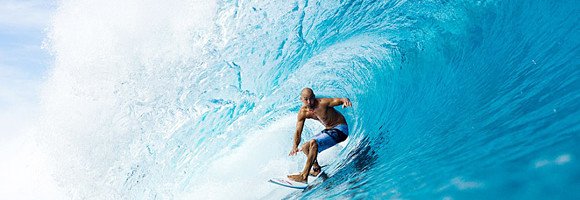Understanding Baggage Policies for Sports Equipment
When planning an adventure in stunning locations like the Fiji Islands, it’s crucial to understand the baggage policies related to sports equipment. Different airlines have varying rules that can impact your travel plans. Typically, sports equipment such as surfboards, snowboards, and bicycles are categorized differently than standard luggage. Many airlines allow a certain number of sports items as part of your baggage allowance, but there may be extra fees involved.
When traveling from New Zealand, it’s essential to check the specific airline’s policies regarding sports equipment. For example, Air New Zealand has specific dimensions and weight limits for surfboards. If your surfboard exceeds these limits, you’ll likely incur additional charges. These fees can add up quickly, so it’s wise to familiarize yourself with the Fiji baggage allowance before your journey. Always pack your gear adequately to avoid damage, as airlines may not cover equipment that is not packed according to their guidelines.
Preparing Your Surfboard for Air Travel
Traveling with a surfboard requires special preparation to ensure it arrives safely at your destination. To begin with, invest in a high-quality board bag that offers ample padding. Many airlines have specific guidelines for surfboards, including maximum dimensions and weight. In New Zealand, companies like Surfboards Direct provide useful information on how to properly prepare your surfboard for travel.
Before flying to the beautiful Fiji Islands, make sure to securely pack your surfboard. Remove any fins and place them inside the board bag to avoid breakage. Use bubble wrap or foam padding around the board for added protection. If you’re unsure about your airline’s specific surfboard policies, consider contacting them directly for clarification. That way, you can avoid surprises at the airport.
Insurance for Sports Equipment
When traveling with valuable sports equipment, purchasing insurance can provide peace of mind. Many travelers overlook this critical aspect, but equipment like surfboards and bikes can be quite expensive, and airlines are not always responsible for damage or loss. When booking your trip to the Fiji Islands, consider adding travel insurance that covers sports equipment.
In New Zealand, various insurance providers offer specialized travel insurance that includes coverage for sports gear. Be sure to read the fine print and confirm that your surfboard or other sports equipment is included. If you plan to engage in adventure sports during your stay, like surfing in Fiji, this insurance can save you from significant financial loss if something goes wrong.
Checking in Your Equipment: Tips for Smooth Travel
To ensure a hassle-free experience when checking in your sports equipment, arrive at the airport with plenty of time to spare. This allows you to navigate any potential issues that may arise, especially if you’re carrying bulky items like surfboards. When you check in, be clear about the nature of your baggage to avoid last-minute surprises regarding fees or handling.
For travelers flying to the Fiji Islands from New Zealand, consider using online check-in options if available. This can save time and provide you with the necessary information about your baggage allowance. Make sure to have all documentation ready, including your travel itinerary and any insurance papers, to make the check-in process as smooth as possible.
Finding Suitable Transportation for Adventure Activities
Once you arrive in the Fiji Islands, you’ll need to consider transportation that can accommodate your sports equipment. Many standard vehicles may not have the space for surfboards or other bulky gear, so look for rental companies that specialize in adventure travel. In New Zealand, companies like JUCY Rentals offer vehicles designed for sports enthusiasts.
Research local transportation options in Fiji that provide racks or storage for surfboards. Some resorts and surf schools may also offer shuttle services with the necessary accommodations. Always confirm that your equipment will be safely transported, especially if you plan to travel between islands.
Local Regulations and Customs for Sports Gear
Traveling with sports gear may also require you to be aware of local regulations. Different countries have various rules regarding the import of recreational equipment. When heading to the Fiji Islands, ensure that you are compliant with customs regulations that may apply to surfboards and other sports equipment.
In New Zealand, it’s common to declare any equipment that may be subject to quarantine. Similarly, familiarize yourself with Fijian customs regulations to avoid any potential issues upon arrival. This includes checking if your equipment requires special cleaning or treatment before entering the country.
Storing and Maintaining Your Equipment During Travel
Proper storage and maintenance of your sports equipment are vital for ensuring its longevity and performance. When traveling, opt for a hard-shell case or a padded bag to protect your surfboard from damage during transit. In addition, consider using wax and other maintenance products that are compliant with airline regulations.
While exploring the Fiji Islands, find suitable storage solutions to keep your gear safe while not in use. Many resorts offer storage options for sports equipment, allowing you to enjoy your adventure without worrying about your gear. Additionally, regularly inspect your equipment for any signs of wear and tear, especially after travel, to ensure it’s in top condition for your next surf session.
FAQs
What are the general baggage rules for sports equipment when traveling to Fiji?
When traveling to Fiji, airlines typically allow a certain amount of sports equipment as part of your baggage allowance. However, it’s important to check with your specific airline for their policies, as each may have different restrictions or fees for items like surfboards or sports gear.
Is there a weight limit for surfboards and other sports equipment on flights to Fiji?
Yes, most airlines have a weight limit for checked baggage, including sports equipment like surfboards. Generally, the combined weight of your surfboard and any other checked luggage should not exceed the airline’s designated limit, often around 23 kg (50 lbs) for economy class. Always verify with your airline for specific weight restrictions.
Are there additional fees for checking in surfboards or sports equipment on flights to Fiji?
Many airlines charge extra fees for checking in oversized or special sports equipment, including surfboards. These fees can vary widely depending on the airline and the type of equipment. It’s advisable to check the airline’s website for their specific baggage allowance and fee structure before your trip.
Can I carry my surfboard as hand luggage on my flight to Fiji?
No, surfboards generally cannot be carried as hand luggage due to their size. They must be checked in as part of your baggage. Ensure that your surfboard is properly packed and meets the airline’s requirements to avoid any issues at the airport.
What is the best way to pack a surfboard for travel to Fiji?
To pack your surfboard for travel, use a padded surfboard bag to protect it from damage. Make sure to secure the board inside the bag with bubble wrap or foam padding, and consider removing any fins to prevent breakage. Label your bag clearly with your contact information to avoid mix-ups.
Are there any specific regulations for transporting sports equipment to Fiji?
While Fiji does not have specific regulations for sports equipment, travelers should be aware of any customs regulations regarding the importation of goods. It’s also advisable to declare any valuable equipment upon arrival to avoid potential issues. Always check with Fiji’s customs regulations prior to your departure.
What should I do if my sports equipment is damaged or lost during my flight to Fiji?
If your sports equipment is damaged or lost during your flight, report the issue immediately to the airline’s baggage service desk at the airport. Provide them with your baggage claim ticket and details about the damage or loss. Airlines typically have policies for compensation or reimbursement for damaged items, so be sure to follow up as needed.
References
- Fiji Islands Official Tourism Website – Explore the guidelines for traveling with sports equipment, including surfboards, when visiting the beautiful islands of Fiji.
- Skytrax Airline Quality – A comprehensive resource on airline baggage policies, including special considerations for sports equipment.
- Travelocity – Offers extensive travel guides and tips on how to manage your baggage, especially for adventure sports enthusiasts.
- Surfer Today – An online magazine that provides insights into surf culture, including tips on traveling with surfboards and related equipment.
- Sports Global – A resource hub that discusses various sports equipment handling, transportation regulations, and travel tips for adventure seekers.







